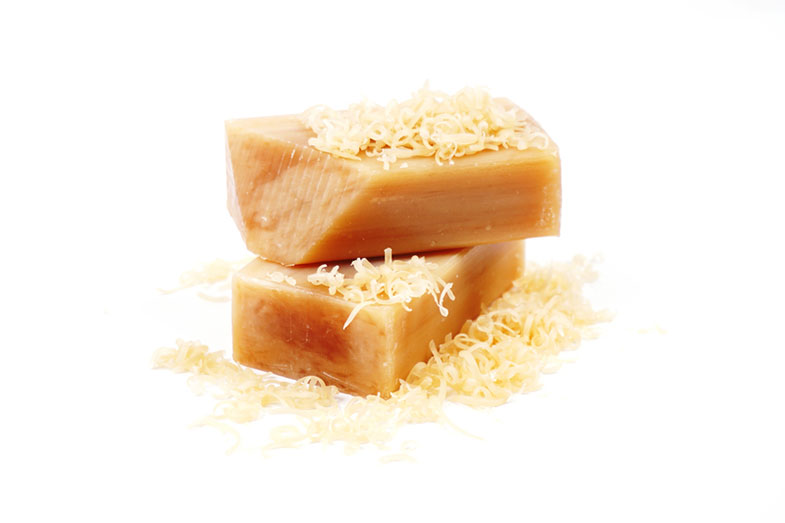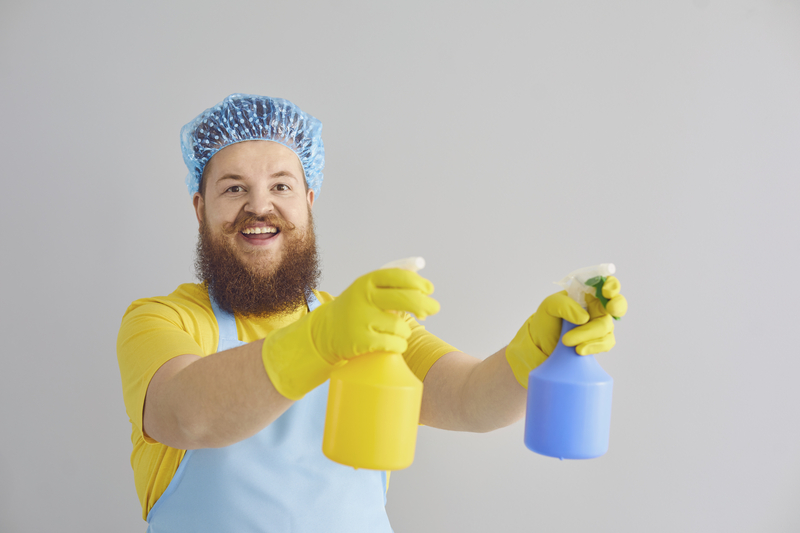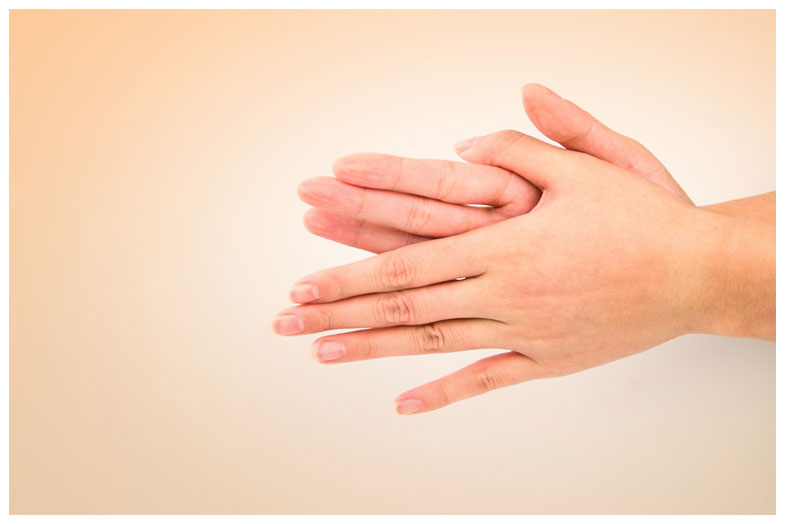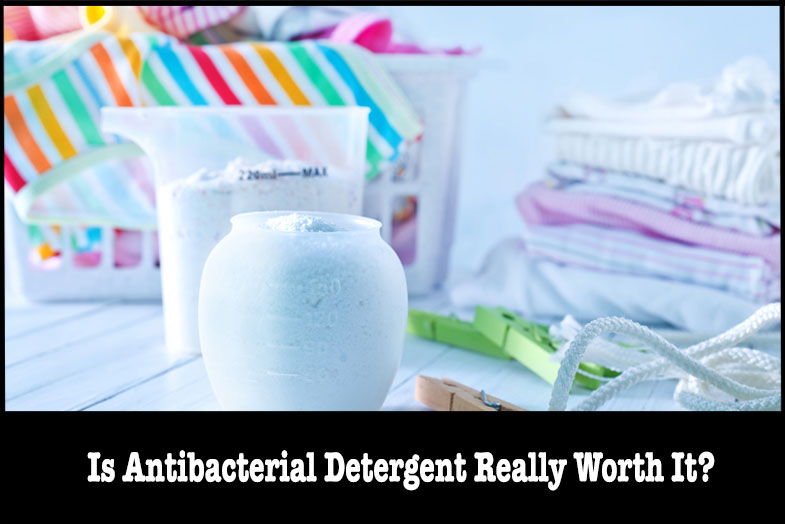Media and market are flooded with “antibacterial” labeled products. We all have at some time challenged the uproar around us, no matter how many people are making the noise. And this makes us think, “Is antibacterial detergent really worth it?”
Research and studies show they are not. Antibacterial detergent and plain detergents perform essentially the same for all kinds of bacteria found on hands.
“Consumers may think antibacterial washes are more effective at preventing the spread of germs, but we have no scientific evidence that they are any better than plain soap and water,” said Janet Woodcock, M.D., director of the FDA’s Center for Drug Evaluation and Research (CDER).
“In fact, some data suggests that antibacterial ingredients may do more harm than good over the long-term.”
Let’s dig deep to know why and how?
What is the Difference Between an Antibacterial and a Regular Detergent?
Saponification reaction is the basis for all Soap manufacturing out there. It’s nothing but a strong alkali, most commonly caustic soda (sodium hydroxide) acting on natural fats or oils. This reaction’s products are invariably sodium or potassium salt of fatty acids called soap and glycerin.
So, what makes an antibacterial detergent or soap different from a regular one?
The answer is active antibacterial ingredients used in antibacterial detergents: triclosan in liquid soaps and triclocarban in bar soaps. Sometimes, in addition to these, alcohol and benzalkonium chloride can also be found. That may seem like a pro or a big plus over the regular ones. But then one thinks, if bacteria are that bad and antibacterial agents are that much good, why are we not taking them as supplements?
That’s why we are here!
Why are Antibacterial Detergents not Worth Their Uproar?

Antibacterial detergent and soap manufacturers have failed to demonstrate that the label “antibacterial” or even the antibacterial product inside is more effective than its regular or plain counterpart.
There are several reasons behind this:
Both do the Same Thing!
Both are equally effective in removing dirt, oil, and germs. This is because, for the additional antibacterial action of antibacterial detergent, it has to be there on the target surface for at least two days. That does not happen, so they are using the same essential ingredients to function.
Drug Resistance
Antibiotics are strengthening the bacteria. They continuously develop weapons and adaptations to fight the anti-biotics and become stronger and better fighters every day.
We are not doing anything close to that to ourselves. When you are not exposing yourself to germs, you don’t develop immunity against them. Germaphobia is, thus, weakening our immune system.
Risk of Hormonal Disruption
Experiments on rats have proved altered hormonal secretion and function in them, for example, estrogenization. The same may or may not be accurate in humans.
Increased Risk of Allergies
Since decreased exposure of the human body to bacteria weakens the immune system, there is an increased risk for developing allergies. The body becomes hypersensitive to the slightest of a substance such as pollen and dust because you haven’t shown it a germ to produce antibodies.
Read More:
Can Your Detergent Impact Your Acne and Skin?
Are Fabric Softeners Good for Asthma?
Antibacterial Detergents Kill Healthy’ Bacteria
All these germophobic campaigns have forgotten that once we had a cute concept of healthy’ bacteria. These bacteria serve to protect our skin against free radicals and hence skin cancers. They are deeply involved with basic cell mechanisms such as balancing cell pH. That way, they make your skin look healthier. Antibacterial detergents try their best to kill them as well!
Does soap have to be Antibacterial to Kill Germs?

No. Your soap doesn’t have to be antibacterial to kill germs. A plain or regular soap offers the same antiseptic or cleaning function as an antibacterial one with triclocarban, alcohol, triclosan, or benzalkonium. Except that your regular plain soap is equally effective against drug-resistant bacteria!
Are Antibacterial Detergents Rather Harmful?
There’s no yes or no answer to this. There are prospects based on animals’ implications when administered triclosan, but no evidence in humans’ case. But the fact that regular soap does the same cleaning as an antibacterial does pretty much settles the debate.
Why are Antibacterial Detergents Used in Hospitals?
Patients are given medications as well. But we are not supposed to take them all year. This is very similar to that.
Antibacterial detergents are very helpful as antiseptic agents, and they are a must in places where diseased people are around. You don’t expose them to even more bacteria and infection when they are already compromised; similarly, you must use them under certain circumstances, such as high bacteria environment. But again, they are in no way different than the regular soap!
If I have to Use Antibacterial Soap, do I need to be careful?
Yes. This is because you may have an allergic response to any of the antibacterial agents used in these soaps and detergents. If there is, consult a doctor and stop using that very detergent. You can use some other one with some other antibacterial agent if you have to.
In the case of a reaction, prefer plain soap instead.
Is Antibacterial Detergent a NO when it comes to House Cleaning?

The possible implications of using antibacterial detergent on hands have nothing to do with the antibacterial detergents used on surfaces. But, do they?
First of all, they don’t reduce the risk of viral diseases since they are not antiviral. And most microbial illnesses are viral.
Second of all, they are killing your exposure to bacteria and developing immunity against them.
Thirdly, they could come in contact with your body in many ways-for example, your crawling baby or when you touch those surfaces.
For those who feel more secure around antibacterial detergents, yes, their surface use is safer than when you use them on your body, such as hands.
Hand Sanitiser or Soap?
Soap and clean water is the best combination to eliminate germs and harmful chemicals on hands and prevent them from entering the body. If they are not available, a hand sanitizer can be an option. But hand sanitizers do not ensure killing all types of germs on hands.
How Does Soap Actually Work?

Soap molecules, i.e., sodium and potassium salts of fatty acids, have this magical ability to bind both water and oil and break down germs.
A soap molecule has a hydrophilic (attracted to water) end and a hydrophobic (repelled by water and attracted to lipid) end. The hydrophilic end binds water, and the other one binds oil. Soap forms a lather with water, oil, and dirt. When rinsed with clean water, the whole mixture makes its way to the drain!
Is Bar Soap Better than Liquid Soap?
They are equally effective. The ongoing discussion suggests using plain soap either in the bar or liquid form to get rid of germs and chemicals on your hands.
Read More: Is Liquid Detergent Bad for Washing Machine?
How should I wash my Hands?

The secret of the antibacterial action of soap is its lather formation. It traps the germs and chemicals and rinses them off.
Let’s see what we can do for effective handwashing:
The first and foremost thing is to wet your hands before applying soap to form a better lather. Experts suggest you turn the water off so that you don’t waste water.
Secondly, scrub your hands for a full 20 seconds. With the interval is essential the areas of your hands you scrub. Make sure you scrub the area of the palm, between the fingers, below the nails.
Use clean water to rinse the lather off, along with germs, oil, and chemicals.
If you follow the above-proposed protocol of handwashing, you can escape any illness related to bacteria and germs entering your body through your hands. And that too very easily and effectively with a bar of plain soap.
Are There Any Pros of Using an Antibacterial Detergent?
Antibacterial detergents are used in healthcare facilities and particular circumstances where surfaces have to be bacteria-free. But for regular use, you are so ready to go with the regular plain soap.
If you insist, we can find one more practical advantage with Antibacterial Soap by looking at it very carefully. And that would be their availability; very easy and in a wide variety. Because we have more antibacterial detergent options and more prominent brands manufacturing them, this makes them more available.
You can choose your favorite fragrance and favorite price. Other than that, research has to show no pros for healthy individuals.
Does Cost Factor in?
When tight on budget, go for plain soap!
If you are at a place where you want to let your budget decide where to go, plain soaps will be there for far lower prices. Antibacterial agents make things expensive!
Conclusion
We have established that antibacterial detergents are not really worth the noise through the above discussion and data. Unless, of course, you have been advised by a doctor under the circumstances such as the risk of infection or when you are hanging out at a place where infection outbreak is suspected due to poor local hygiene.

